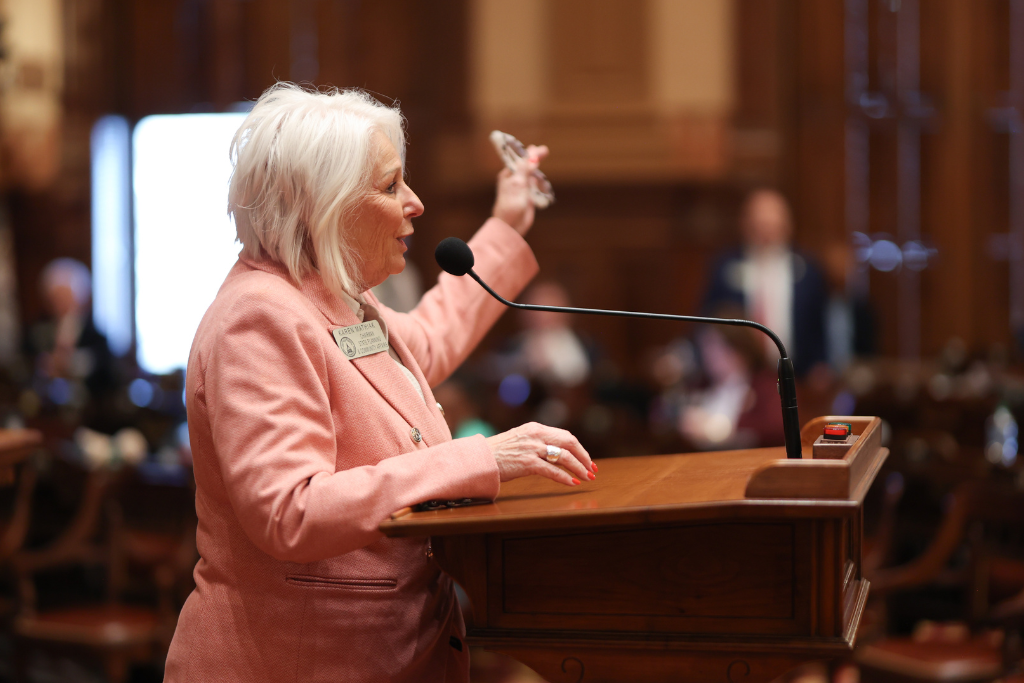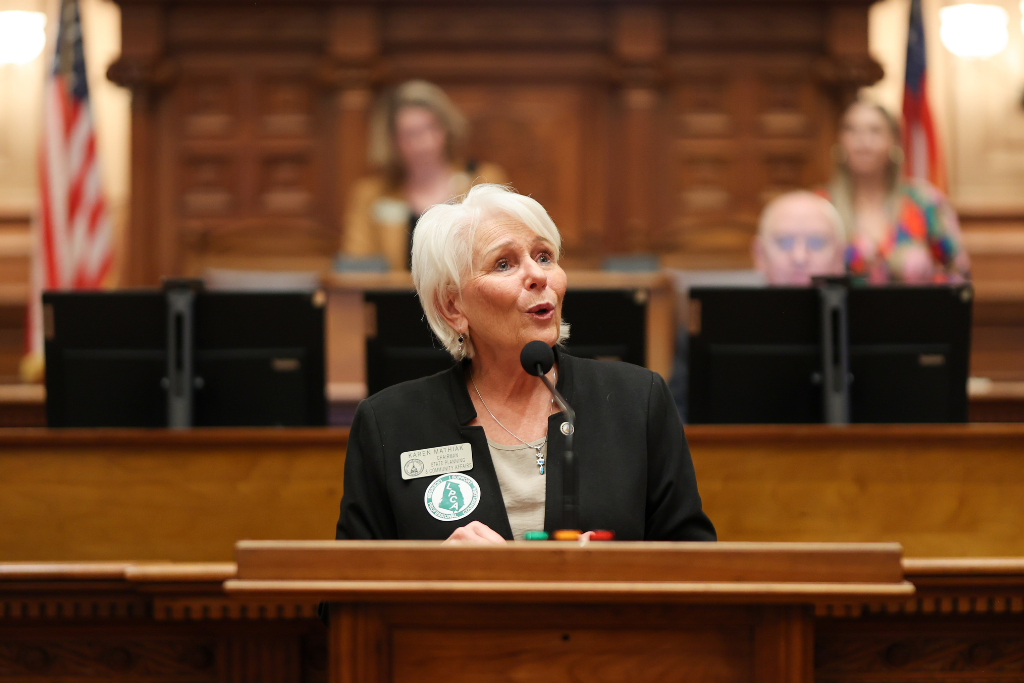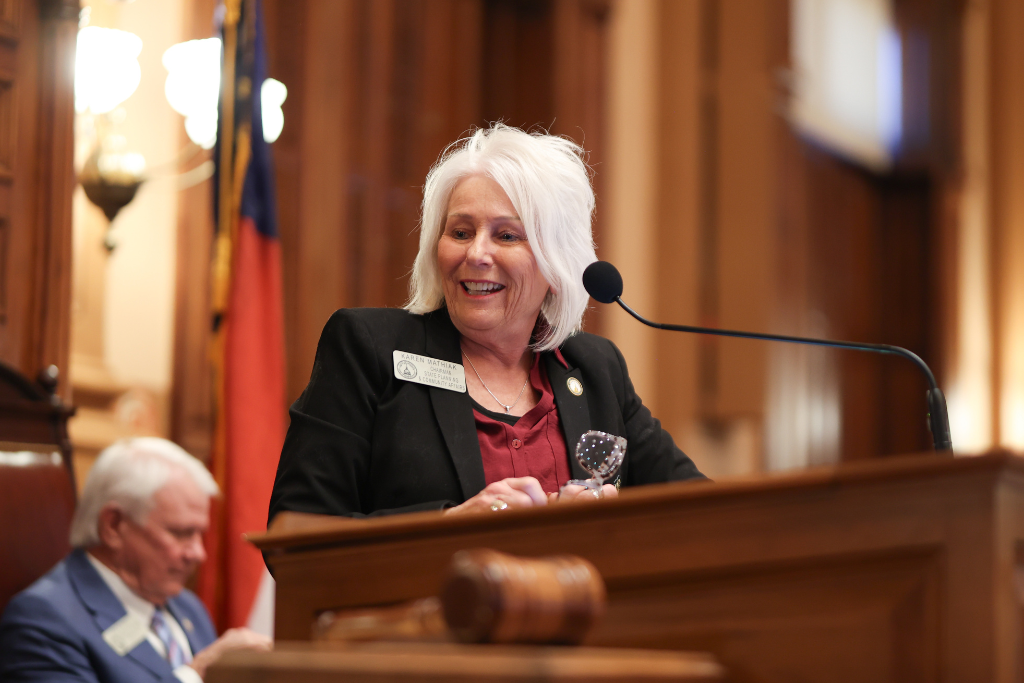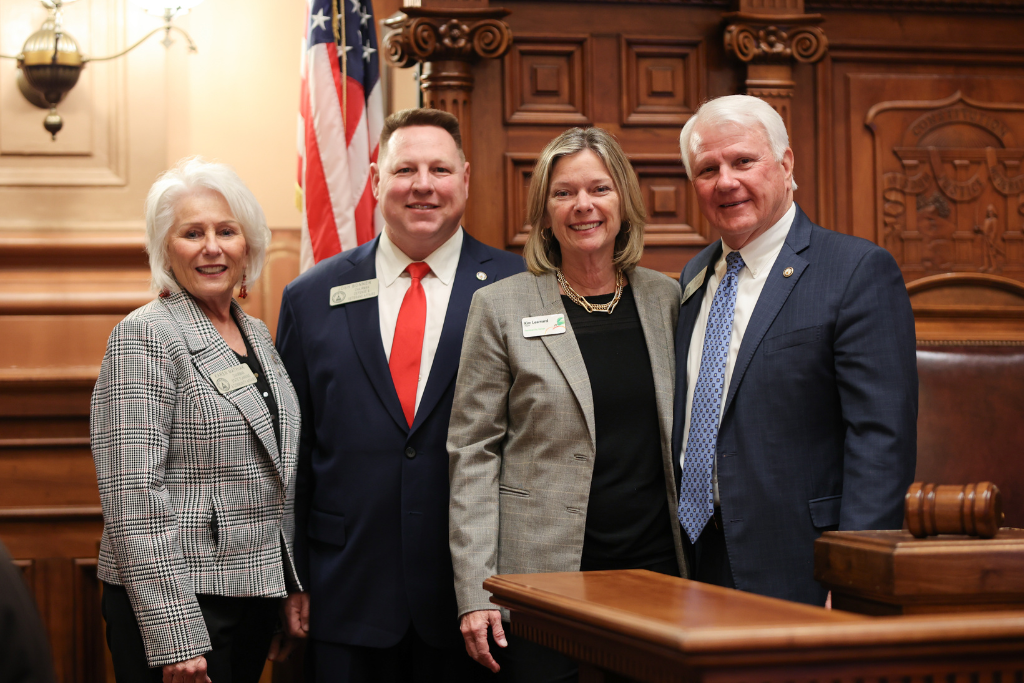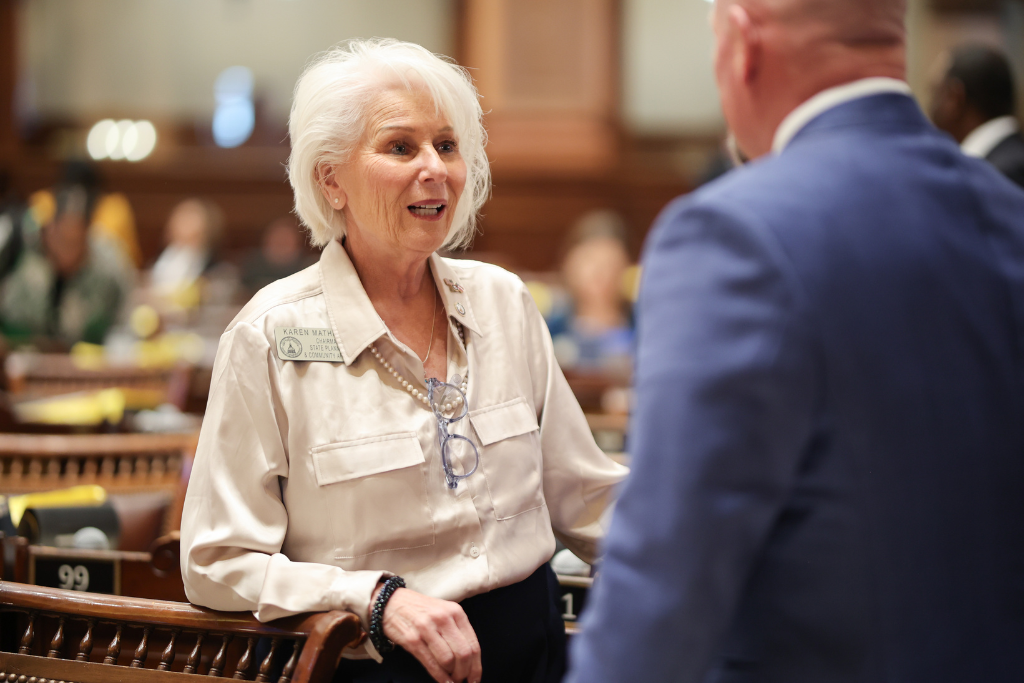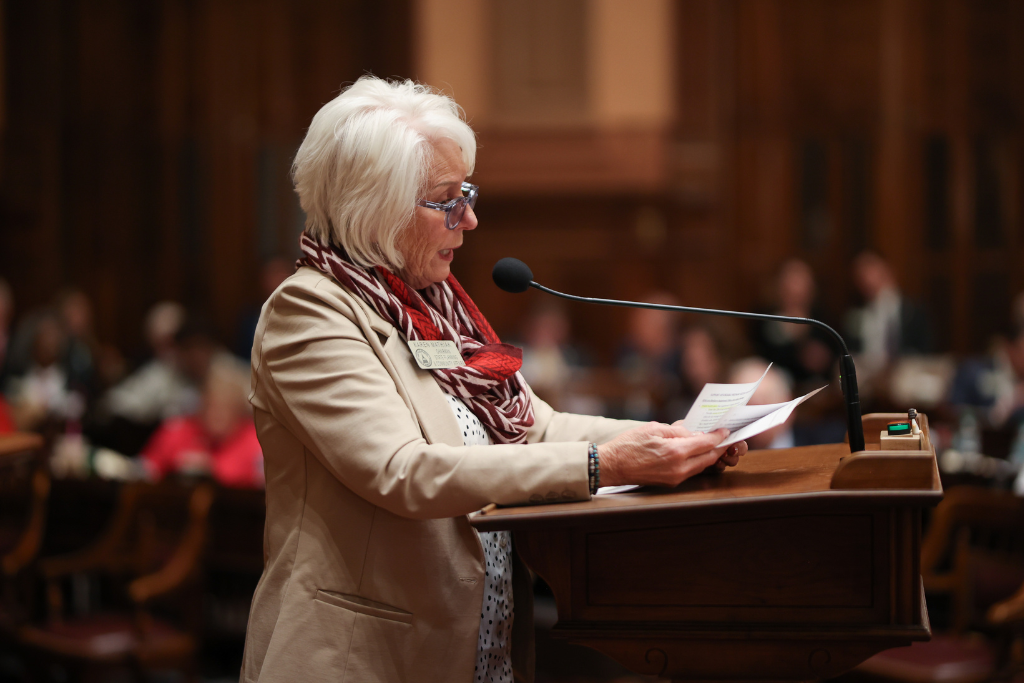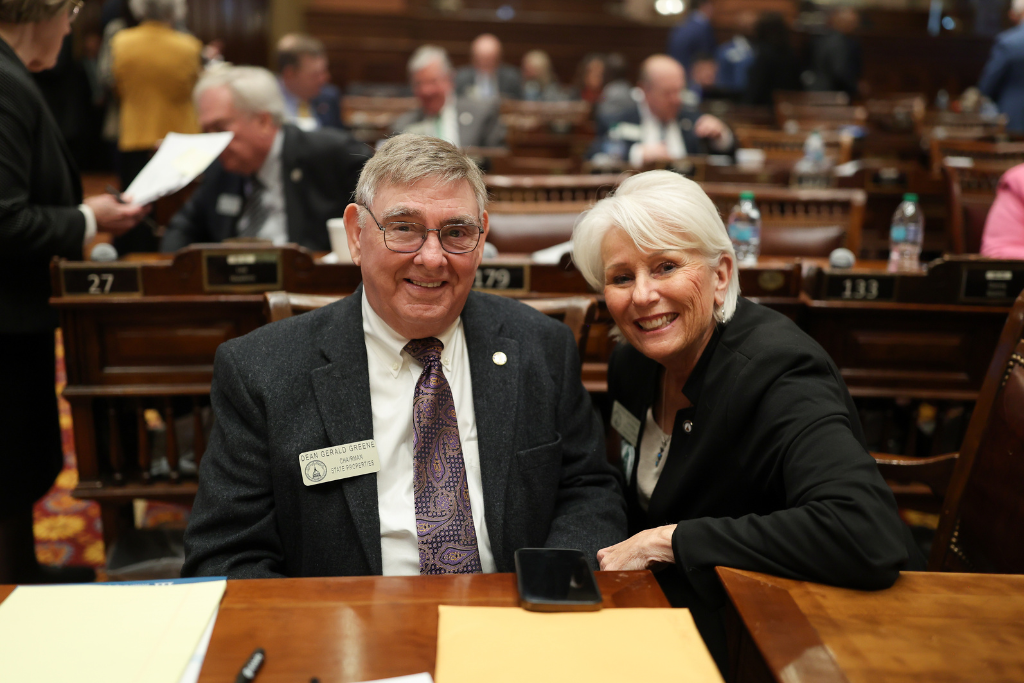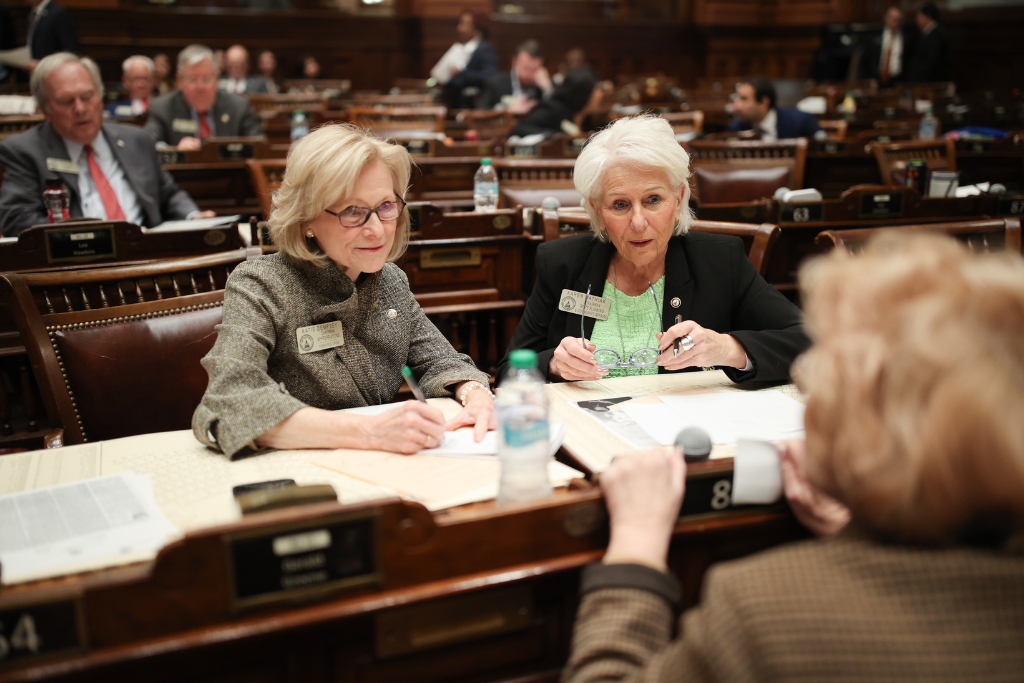Week 9 Legislative Session Recap 2025
March 10 - 14, 2025
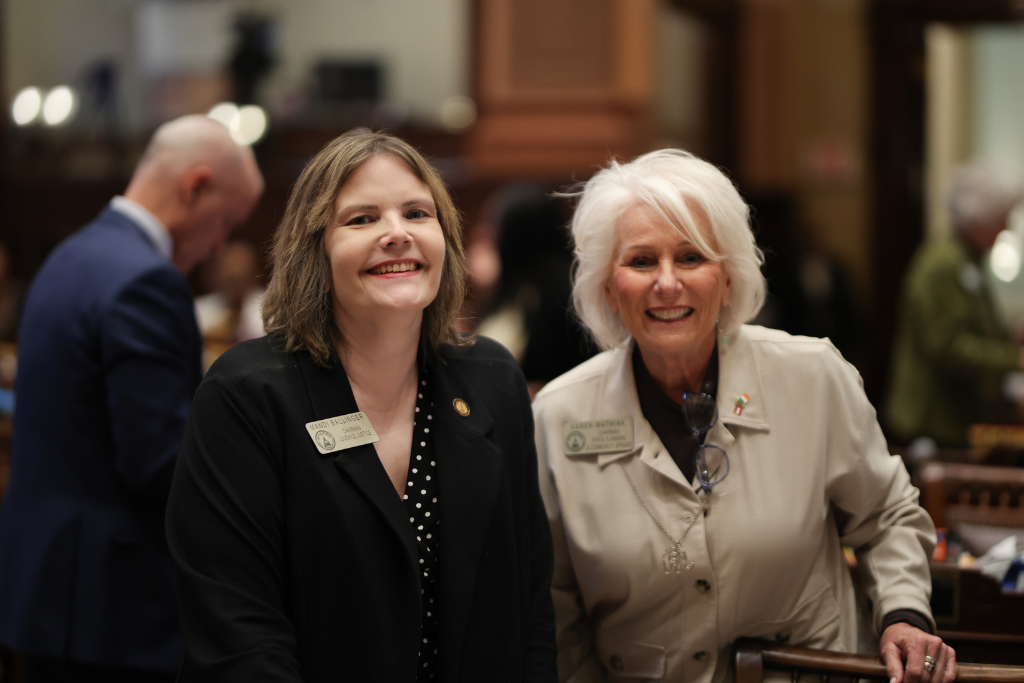
After a fast-paced and eventful Crossover Day last week, members of the Georgia House of Representatives returned to the State Capitol on Monday, March 10th for Legislative Day 29, kicking off our ninth week of session. With Crossover Day behind us, the House began to review and vote on legislation that passed over from our Senate counterparts this week. Additionally, my colleagues and I successfully passed the House’s version of the Fiscal Year (FY) 2026 budget, House Bill 68. This critical piece of legislation would outline and allocate the necessary funding for the state’s operations and services in the upcoming fiscal year, beginning July 1, 2025, and ending June 30, 2026. The House passage of HB 68 serves as a significant milestone in the legislative process, fulfilling our constitutional obligation to pass a balanced budget. It also lays the foundation for the priorities that will guide Georgia’s growth and development for the next year, with significant investments in education and public safety.
With a revenue estimate of $37.7 billion—marking an increase of $1.6 billion or 4.4 percent over the original FY 2025 budget—the House’s version of HB 68 places a strong emphasis on addressing the critical needs of Georgia’s education system to ensure that Georgia students can thrive. As such, a large portion of HB 68 would support a statewide literacy initiative aimed at improving reading outcomes for students in kindergarten through fifth grade, recognizing that reading proficiency by the end of third grade is central to future academic success and beyond. Therefore, the House’s version of the FY 2026 budget appropriates $22.7 million—$10 million of which includes new funding—to support the recommendations of the Georgia Council on Literacy. HB 68 appropriates $18.5 million for 116 Regional Education Service Agencies (RESA)-based literacy coaches, providing individualized teacher support to ensure that structured literacy and the science of reading would be implemented effectively. Additionally, HB 68 allots $2 million for a free universal reading screener that would be available to all school systems as a result of the efforts outlined in House Bill 538, the Georgia Early Literacy Act, which Governor Brian Kemp signed into law in 2023. The House’s version of the FY 2026 budget also includes funding for a state-level coaching coordinator position that would support competency-based research and training for literacy coaches and educators.
In addition to investing in literacy initiatives, HB 68 also demonstrates the House’s commitment to school safety, proposing a $25 million investment that would cover the first-year costs of the statewide School and Student Safety (S3) Database—a new tool that would collect and investigate school-based threats across state and local law enforcement agencies. This proposal would also support Behavioral Threat Assessment Management (BTAM) teams, which would address identified threats and enhance overall school safety. This funding is included in the House’s budget as a result of House Bill 268, a comprehensive school safety plan that prioritizes strengthened safety measures, that is now awaiting Senate consideration. The House’s version of the FY 2026 budget also includes $19.6 million for mental health support grants for school systems through the Student Support Services program, a new initiative outlined in HB 68 that would provide both academic and mental health support to students both in and outside of school. Similar to school security grants, school systems would earn $20,000 per middle and high school for mental health services, including contracting with providers, tele-mental health contracts or hiring in-school counselors. HB 68 also includes investments in student well-being and proposes $28 million in targeted support for economically disadvantaged students, allowing Georgia to join 45 other states in providing additional funds through a poverty weight to districts with a high proportion of these students. Additionally, HB 68 would once again fully fund the Quality Basic Education (QBE) program with a record $14.7 billion in state funds for K-12 education.
The House’s FY 2026 budget further supports students and educators across Georgia by recommending a total of $6.3 million in state funds to continue to provide breakfast and lunch for reduced-paying students, which would certify that every child has access to nutritious meals while they are at school. Additionally, the Non-Quality Basic Education program would receive $5.9 million for sparsity grants, which would benefit 131 qualified schools based on updated survey data. These grants are designed for schools with smaller student populations that would not generate enough funds through QBE to meet staffing and operational needs. The Non-Quality Basic Education program would also receive $150,000 in new funding for feminine hygiene products, bringing the total appropriation to $1.65 million. These grants would be specifically targeted to low property tax wealth districts with high concentrations of economically disadvantaged students. Moreover, HB 68 includes $7.5 million for the School Supplies for Educators program, as outlined in Senate Bill 464, which passed during the 2024 legislative session. These funds would provide educators with $100 each to purchase essential school supplies, recognizing that many school teachers often pay out-of-pocket for classroom supplies.
In the Technology and Career Education program, the House’s version of the FY 2026 budget appropriates $1.25 million for high-demand equipment grants that would support new and expanding career and technical education labs, including grants for heavy equipment simulators. HB 68 also sets aside $14 million in lottery funds for the Georgia Pre-K Program to continue implementing the recommendations from the House Early Childhood Education Working Group. This funding would support year two of a four-year phase-in to reduce class sizes from 22 to 20 students, aiming to improve instructional quality. HB 68 also includes the addition of 93 new Pre-K classrooms that would accommodate growing demand across the state.
While education funding is a substantial part of HB 68, the House’s version of the FY 2026 budget also prioritizes funding aimed at enhancing Georgia’s courts, correctional systems and public safety sectors. The House’s FY 2026 budget provides $1.6 million to the Council of Accountability Court Judges that would increase participation in accountability courts. This funding would enable an additional 843 Georgians to receive treatment and services for mental health and drug addiction, which offers an alternative to incarceration. Furthermore, since FY 2021, the Georgia General Assembly has made significant investments in Georgia’s correctional officers and juvenile correctional officers, recognizing their critical role in maintaining safety and security within the state’s correctional facilities. This funding has resulted in a 63.9 percent salary increase for these dedicated public servants, with an additional four percent pay raise that is included in FY 2026; this would amount to $13.5 million for the Department of Corrections and $3.1 million for the Department of Juvenile Justice. The House’s version of the FY 2026 budget also includes a $250 million increase for the Department of Corrections, with $45 million allocated to hire more than 700 new correctional officers, which would improve inmate-to-staff ratios, underscoring the state’s continued support for the hard work and sacrifices of correctional officers who play an essential role in Georgia’s justice system.
Furthermore, the House recognizes the critical condition of the state’s aging correctional facilities, many of which are in need of repairs to guarantee the safety of both inmates and correctional officers. HB 68 provides funding to move 667 prisoners from state prisons to other housing units, which would pave the way for necessary renovations. Additionally, four new 126-bed prefabricated housing units would become available through HB 68, allowing for the relocation of 1,171 inmates as part of widespread facility renovations. The House’s budget also allocates $15 million to address capital maintenance and repairs and $19.2 million for skilled maintenance staff to help address and repair critical infrastructure needs. Further, the House’s FY 2026 budget also adds $56.8 million to the Department of Corrections to continue offering comprehensive physical, mental, dental and pharmaceutical services to inmates. This appropriation would expand mental health services by funding an additional 42 mental health professionals, ensuring that inmates receive the care and support they need. Finally, HB 68 includes $2.8 million that would make 100 transition center beds available at the Smith Transitional Center in Evans County. These beds would provide inmates returning to the Southeast Georgia area with access to necessary resources, including employment assistance, social services, housing support and family reunification programming.
The House is also working to address homelessness in our state, and this budget includes funding to aid in that effort. The House’s version of the FY 2026 budget allocates $6 million for homelessness initiatives, with an additional $4 million designated to leverage federal funding for the State Housing Trust Fund for the Homeless. This fund, developed through the Georgia Department of Community Affairs, supports organizations that provide housing and services to individuals and families working to overcome homelessness. HB 68 also includes $2 million that would assist in expanding the Accountable Housing Initiative, which also falls under the umbrella of the Department of Community Affairs and awards funding on a competitive basis to eligible applicants who demonstrate an ability to provide voluntary, immediate, stable housing and support services to program participants. The Georgia Department of Behavioral Health and Developmental Disabilities receives $2.7 million in new funding that would support different programs that address homelessness, including 100 new housing voucher slots, outreach services for those with severe mental illness and a community action team.
HB 68 also makes significant investments in maternal health as the House continues its work to improve healthcare outcomes for women across Georgia. More than $9 million in new funding is included in HB 68 to address maternal health needs, and $5 million is dedicated to expanding and sustaining labor and delivery services in rural areas of the state. Providing access to maternal healthcare in rural Georgia is paramount, as many rural communities across the state face significant healthcare shortages and barriers to maternal care. This funding would help build the necessary infrastructure to provide high-quality care to mothers in underserved communities. Additionally, HB 68 includes $1.2 million for the Department of Public Health’s Office of Cardiac Care that would be used to provide grants to hospitals to enhance cardiac care, as cardiac complications remain a leading cause of maternal mortality. To further improve maternal healthcare outcomes, $700,000 is set aside to support quality improvements at birthing facilities that would assist in increasing the number of facilities that meet verified maternal and neonatal care standards. Lastly, the House’s version of the FY 2026 budget directs the Department of Public Health to study the needs of regional emergency transportation, which could help identify more efficient ways to transport mothers who require additional care.
The House’s FY 2026 budget is robust, and I would like to highlight some additional noteworthy investments in HB 68. The House’s version of the FY 2026 budget proposes an additional $23.25 million for the Employees’ Retirement System of Georgia, which would bring the total appropriation for the system to $50 million. This funding would provide an enhanced annual benefit adjustment for eligible retired state employees, ensuring that they receive the financial support they deserve after years of dedicated service to our state. Furthermore, the House has also aligned with the governor’s recommendation to the Department of Administrative Services to provide more than $1.5 million in supplemental payments to first responders suffering from occupational post-traumatic stress disorder (PTSD). This funding stems from House Bill 451, a House led initiative passed during the 2024 legislative session, which requires that public entities provide specialized insurance for first responders diagnosed with PTSD. Under the provisions of HB 451, these brave individuals will receive a lifetime benefit, including a $3,000 cash payment and income replacement disability benefits, available 90 days after diagnosis, if necessary. Finally, HB 68 appropriates $19.2 million to support growth in our state’s foster care system and account for rising costs of care. Our budget also allocates $1.5 million for clothing and supplies for foster youth; the funding would also help keep foster children closer to their families, deter child welfare involvement and support those aging out of the foster care system.
HB 68 is now awaiting consideration and action by the Senate, where it will undergo a similar committee review process. We expect that the Senate may make changes to the House’s version, which would lead to the appointment of a conference committee to reconcile any differences between the two versions. Once a final version is agreed upon and passed in both chambers, HB 68 will be sent to the governor’s desk for approval and signature into law.
In addition to passing the FY 2026 budget this week, the House also voted on Senate Bill 81, which would enhance data privacy for automobile dealerships and update other requirements related to the relationships between auto manufacturers, affiliates, franchisors and dealers. The Georgia Motor Vehicle Franchise Practices Act has been amended multiple times over the past 35 years, but SB 81 seeks to make significant updates to this law by upholding consumer protections and ensuring fairer business practices when purchasing vehicles. First, this legislation would reaffirm the need for transparency with automobile warranty and recall information and ensure a competitive marketplace in order to foster fair pricing and accessible repair facilities. The bill also emphasizes that independent dealerships are essential for consumer protection and integration of new automotive technologies, while also preventing monopolistic practices that could harm local dealerships. Next, the bill would set stricter guidelines for consumer data protection for franchisors, manufacturers and third parties when handling data in the sale, leasing or repair of a vehicle. SB 81 would prohibit manufacturers from unauthorized access and sale of dealership data. It also would limit third-party interference in data storage and allow dealers to back up data in order to streamline the sales processes and safeguard it against security breaches. Under SB 81, manufacturers would still be allowed to access customer information in regard to essential needs, such as safety recalls, sales transactions, incentive validation and reasonable marketing purposes. Furthermore, manufacturers would be required to compensate franchise dealers who assist customers with over-the-air (OTA) vehicle recalls and disclose new vehicle functions that may be updated via OTA. In doing so, customers would have more transparency regarding their vehicle. The bill would also improve the allocation process by defining what would be considered a reasonable quantity of vehicles distributed to dealers, ensuring that smaller dealerships would have access to a fair quantity of vehicles and parts. Lastly, SB 81 would set guidelines for manufacturers that opt out of participating in franchise systems and choose to sell directly to the public, such as Tesla and Rivian. These manufacturers would still be allowed to make direct sales to the public but could not operate their own dealerships or enter into sales contracts from their showroom under the franchise law. This legislation seeks to remedy any gaps in the law, ensuring more equal opportunities for consumers and businesses alike.
We also passed the following Senate bills during the ninth week of session:
- Senate Bill 138, which would revise certain requirements of service between a qualified municipality and its county during the transition period, which is the period of the transition of governmental services from a county to that municipality. A qualified municipality would be a new municipality created by local Act that becomes law on or after January 1, 2024. The county would be required to have 15 or more municipalities for the provisions to apply. The bill would require the county to provide police or law enforcement services within the boundaries of the municipality until the municipality notifies the county of their intention to assume those services. If more ad valorem tax is collected within the municipality boundaries than the costs for police services provided by the county, the county would have to pay the excess funds to the municipality. During the transition period, the municipality would assume ownership over any road rights of way within its boundaries. The county would be responsible for maintenance of those roads during the transition period at the municipality’s discretion. The county would also be responsible for any infrastructure designed to temporarily retain 1,000 gallons or more of storm water, dams or detention ponds within the municipality, unless otherwise agreed upon. The county would reimburse the municipality a certain percentage of those fees collected of any permitting or application process within the municipality that is not completed when the municipality assumes that service. Any Service Delivery Strategy (SDS) that is in place upon the creation of the municipality would not be required to be renegotiated. The bill would allow the municipality to opt into any service provided to another city under the present SDS. If any service is assumed by the municipality in the middle of the county’s tax year, the county would give the municipality a proportional share of any tax or fee collected within the municipality. Certain insurance taxes could be collected by the municipality if all necessary legal steps have been taken to do so within 18 months of a referendum incorporating the municipality. The county would also be required to reimburse any legal expenses resulting from legal action taken against the municipality that is found to be related to actions of the county during the transition period. If a court finds that a county violates any mentioned responsibility, the sovereign immunity of the county would be suspended for one year from the date of the judicial ruling;
- Senate Bill 139, which would annex certain described property into the City of Mulberry;
- Senate Bill 144, which would allow pesticides registered with the Department of Agriculture commissioner that display a label approved by the Environmental Protection Agency (EPA) or is consistent with the Federal Insecticide, Fungicide and Rodenticide Act human health risk assessment to be considered a sufficient warning of health risk. Provisions regarding this new subsection would not be applicable when the EPA has discovered that a manufacturer has knowingly withheld, misrepresented, concealed or destroyed certain health risks in order to obtain EPA approval.
My House colleagues and I will return to the State Capitol on Tuesday, March 18th to continue our important work advocating for your needs and interests. With less than 10 legislative days remaining, we are in the final stretch of this legislative session with our final day, or Sine Die, scheduled for April 4th. The next few weeks will be critical as we work to make decisions that will impact the future of our state.
I encourage you to reach out with any questions or concerns regarding the bills being considered by visiting my Capitol office, calling 404-656-0213, or emailing karen.mathiak@house.ga.gov.
As always, thank you for allowing me to serve as your representative.

